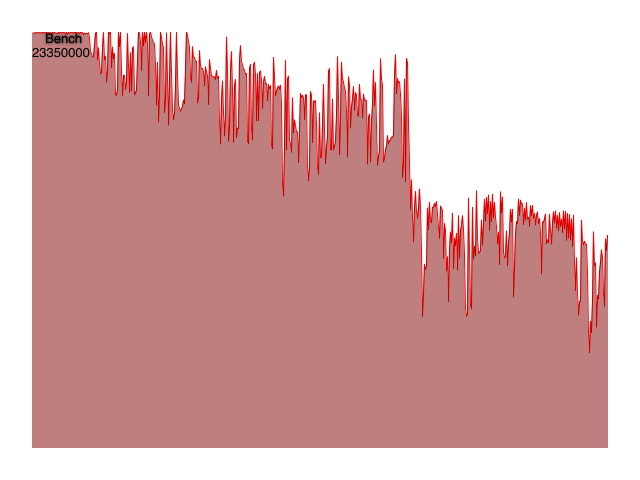Apple Macs and thermal throttling
Since Apple migrated to the energy-hungry Intel x86 CPUs some years ago Macs got quite some overheating, thermal throttling issues. For example you will find many compact aluminum Macs to become so hot, that you would barely want to touch, or use on your lap, with the miniature fans spinning at full pace.
The bad is that Mac users typical will not even notice that the (Intel) silicon will even start to emergency throttle down. They will only notice the machine becomes less “snappy”. Linux on the other hand will happily log the MCE to your syslog instead:
CPU0: Temperature above threshold, cpu clock throttled (total events = 794)
CPU0: Core temperature above threshold, cpu clock throttled (total events = 1)
If my aging, non-unibody, MacBook Pro would not throttle that much it would still be a perfectly reasonably powerful machine to use - even as professional. But as it became so annoying I decided to write a little benchmark too that logs the performance over time. When freshly booted this MacBookPro3,1 will start to throttle down after just a minute! And you will notice another spike of throttling where I started another benchmark instance on the second core, …

However, I think when I purchased the machine back in 2007 it was not that bad, I have the feeling it became worse when Apple exchanged the logic board due to the faulty, and failing NVidia chip, … maybe something (fan, heat-sink or -pipe) was not re-aligned perfectly, or too much thermal paste applied, …
I experienced this throttling with all MacBooks and iMacs in the last years. I just tested the latest (mid-2011) MacBook Air at a local shop which thanks to the Sandy Bridge Core CPU does finally not show this symptom that badly. They intentionally choose the lowest performance Ultra-Low-Voltage CPU for a reason, … Though thanks to the advent of Intel’s Turbo Boost it shows fluctuating performance levels, too. One could argue it is an publicly advertised thermal throttling feature :-)
Whether due classic thermal throttling, or TDP (Thermal Design Power) based Turbo Boost: for researchers this means any such CPU is out of question for scientific performance measurements. A fixed-frequency CPU without funky throttling and boosting as well as a BIOS’ SMM (System Management Mode) not interfering (too much) is a must. Unfortunately, the later is hard to prove and avoid, though.
